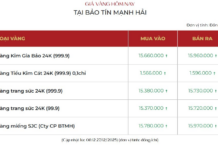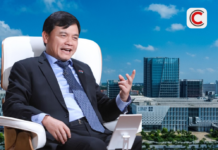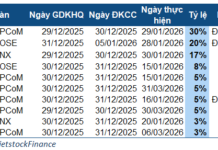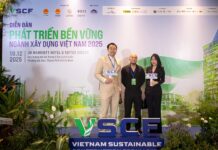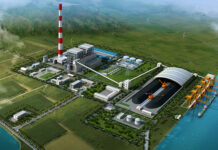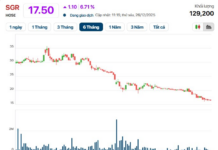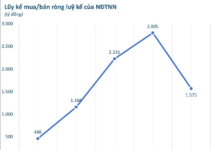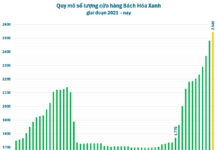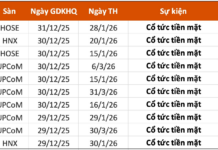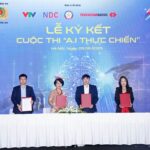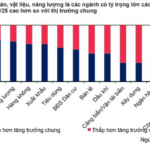In an interview with the Vietnam Economic Magazine/VnEconomy, Mr. Srini Nagarajan, Managing Director and Asia Regional Head of the UK’s International Investment Organization (BII), shared his perspective on the importance of accelerating energy transition to achieve Vietnam’s double-digit growth goal, as well as moving towards a green and climate-resilient economy, from the perspective of an international financial organization.
Vietnam is currently considered one of the most dynamic emerging economies in Asia. From the perspective of an international financial organization, how do you assess Vietnam’s economic development picture in association with the country’s green development goals?
The Vietnamese government has committed to achieving net-zero emissions by 2050, along with specific targets for clean energy by 2030. With a target of 6.5 – 8.5% annual growth, Vietnam’s energy demand needs to increase by about 10% to keep up with this development trajectory. This requires Vietnam to rapidly expand its clean energy infrastructure, ensuring both economic growth and environmental commitments.
Vietnam is currently one of the most vulnerable countries to the impacts of climate change. The country’s energy sector has relied heavily on fossil fuels for many years, resulting in high emissions, along with emissions from agriculture, industry, and waste. Therefore, Vietnam’s commitment to developing the renewable energy sector will definitely open up prospects for attracting strong foreign direct investment (FDI) into green and climate-related projects in the coming years.

In particular, in Vietnam’s economic growth and green development goals, the UK government, along with many other countries, is actively supporting Vietnam in its efforts to achieve net-zero emissions by 2050 through the Just Energy Transition Partnership (JETP). Based on this support orientation, BII’s objectives are also fully aligned with Vietnam’s sustainable development strategy.
In Southeast Asia, we focus our investments on two key areas: climate and infrastructure. Therefore, our investment strategy prioritizes markets where investment capital can have a strong spillover effect, acting as a catalyst to attract additional commercial capital from countries. Vietnam’s energy transition process is one of BII’s key investment priorities in the coming years.
The Vietnamese government is aiming for double-digit growth for the 2026 – 2030 period. In your opinion, what does Vietnam need to do to achieve this goal?
This is a very impressive goal set by Vietnam, requiring great confidence and determination from the government. Moreover, this target also inspires young people in Vietnam and shows that the country is aiming for a grand vision for the future.

“Vietnam has been promoting the development of renewable energy, and this is in line with BII’s orientation. Renewable energy not only protects the environment but also offers high economic efficiency, with low production costs and stable power supply through storage systems. This is why promoting the development of renewable energy has become an inevitable choice worldwide, and this aligns with the green development strategy that both Vietnam and BII are aiming for.”
However, to achieve double-digit growth, any country needs to implement synchronized development strategies. Economic growth must go hand in hand with energy growth to meet development needs. Without promoting energy growth, there can be no sustainable development.
Especially, future energy growth cannot continue to rely on traditional sources but must shift strongly towards renewable energy such as wind and solar power. This transition will be key to helping Vietnam achieve both its economic development and environmental sustainability goals. This foundation will also bring Vietnam closer to its goal of becoming a high middle-income country and, further ahead, a high-income country.
Currently, BII has committed to allocating at least 30% of its new investment capital over the next five years to climate finance. Meanwhile, Vietnam is also making strong efforts to achieve its net-zero emissions target. With this alignment, how does BII plan to further cooperate with the Vietnamese government and expand support in the field of renewable energy in the future, Mr. Srini?
Vietnam has been promoting the development of renewable energy, and this aligns with BII’s orientation. Renewable energy not only protects the environment but also offers high economic efficiency, with low production costs and a stable power supply thanks to storage systems. This is why the promotion of renewable energy has become an inevitable choice worldwide, and it fits well with the green development strategy that both Vietnam and BII are aiming for.
Notably, renewable energy, especially solar power, is currently one of the cheapest sources of energy due to the decreasing cost of solar panels. Meanwhile, the wind power sector is becoming more competitive as turbine prices fall, and energy storage technologies such as batteries and pumped hydro are continuously improved at lower costs. Therefore, these conditions will enable Vietnam to further develop renewable energy sources in the future.
To accompany Vietnam on this journey, we are implementing multiple investment channels to support the country’s sustainable development. By investing in regional funds, with Vietnam as a key market, we indirectly provide capital for green projects in Vietnam. In addition, we also make direct equity investments in businesses that are leading the energy transition in Vietnam.
We always strive to engage like-minded investors when supporting Vietnam in its green transition. Notably, BII recently provided a $50 million loan to VPBank.
This loan is part of a $350 million package coordinated by the Sumitomo Mitsui Banking Corporation (SMBC), with the participation of the Export Finance Australia (EFA), FinDev Canada, and the Japan International Cooperation Agency (JICA). This new capital will contribute to Vietnam’s national goals of inclusive economic development, green growth, and critical infrastructure development, especially supporting small and medium-sized enterprises’ access to capital.
Small and medium-sized enterprises are currently the backbone of the economy, creating the most jobs, and playing an important role in the growth of all nations, including Vietnam.
Therefore, supporting these enterprises’ access to capital is crucial, especially during the green transition. The country that best supports small and medium-sized enterprises in their green journey will have a sustainable advantage. Everything we are doing, directly or indirectly, is aimed at helping Vietnam achieve its net-zero emissions target by 2050.
Currently, foreign investors still face some difficulties when implementing renewable energy projects in Vietnam. In your opinion, what does Vietnam need to do to facilitate investors and attract more capital into the renewable energy sector in the future?
For any investor considering investing in an emerging market, four factors are always prioritized.
First, a stable, transparent, and predictable policy environment.
Second, a smooth project implementation process with minimal administrative barriers…
The full content of this article is published in the Vietnam Economic Magazine Issue 31-2025, released on August 4, 2025. Please refer to the link for more details: https://premium.vneconomy.vn/dat-mua/an-pham/tap-chi-kinh-te-viet-nam-so-28.html
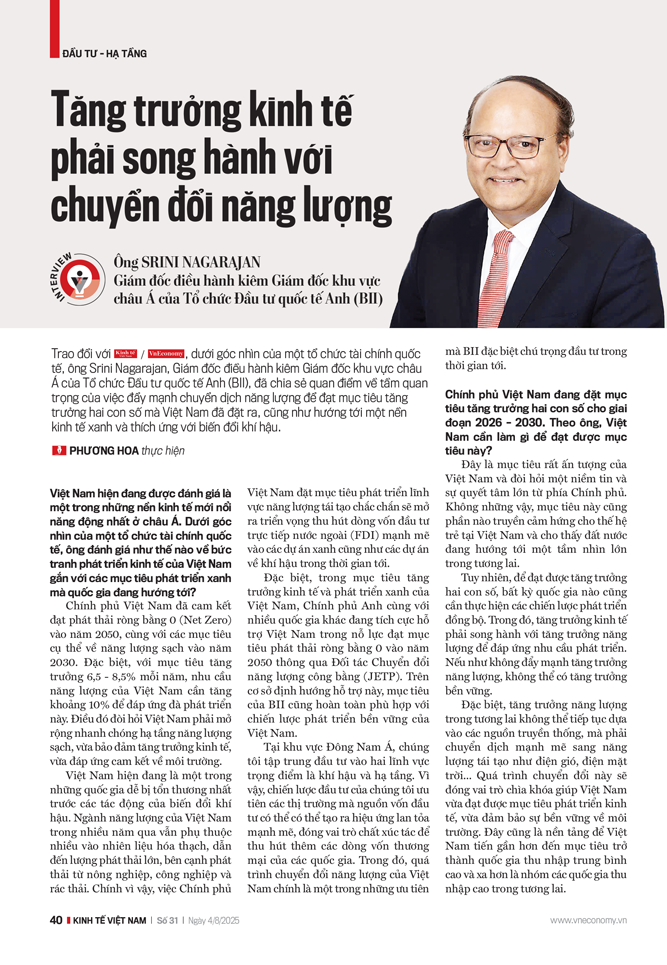
“Welcoming Our Newest Partner: Tokyu Corporation Joins the Nam Long Family for Izumi City Project”
On July 30, 2025, Nam Long Investment Corporation (HOSE: NLG) reinforced its international cooperation strategy with the participation of Japan’s century-old conglomerate, Tokyu Corporation, in the Izumi City project.
“AI: The Ultimate Showdown”
“Vietnam is embracing the digital age with the rapid advancement of Artificial Intelligence (AI) – a key technology in the strategy to boost economic and social growth. Under the patronage of the Ministry of Public Security, Vietnam Television, the National Data Center, the National Data Association, and Techcombank have jointly announced the official launch of the “AI Master Challenge” on a national scale. This competition aims to identify top talent in the field of AI. The program is expected to be a highlight among initiatives to propel Vietnam towards becoming a hub for innovation, developing AI solutions, and applications with regional and global impact.”
Is Life Insurance Profitable?
Life insurance is inherently about financial protection against risks. However, today’s investment-linked insurance policies offer a unique combination of investment and protection, creating an opportunity for policyholders to profit. It’s important to note that returns are not fixed and depend on market fluctuations, the duration of the contract, and the financial discipline of the individual.
“Sunshine Group Announces SCG’s Q2 2025 Financial Report”
The second-quarter 2025 financial reports of Sunshine Group Joint Stock Company (HNX: KSF) and SCG Construction Group Joint Stock Company (HNX: SCG) have just been released.










